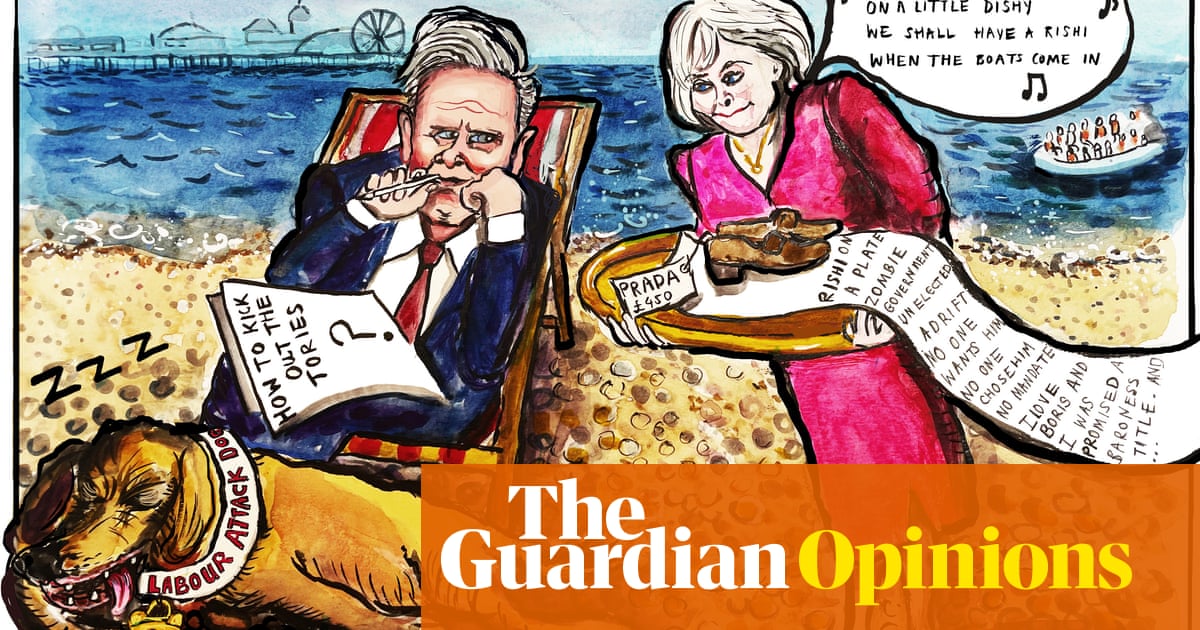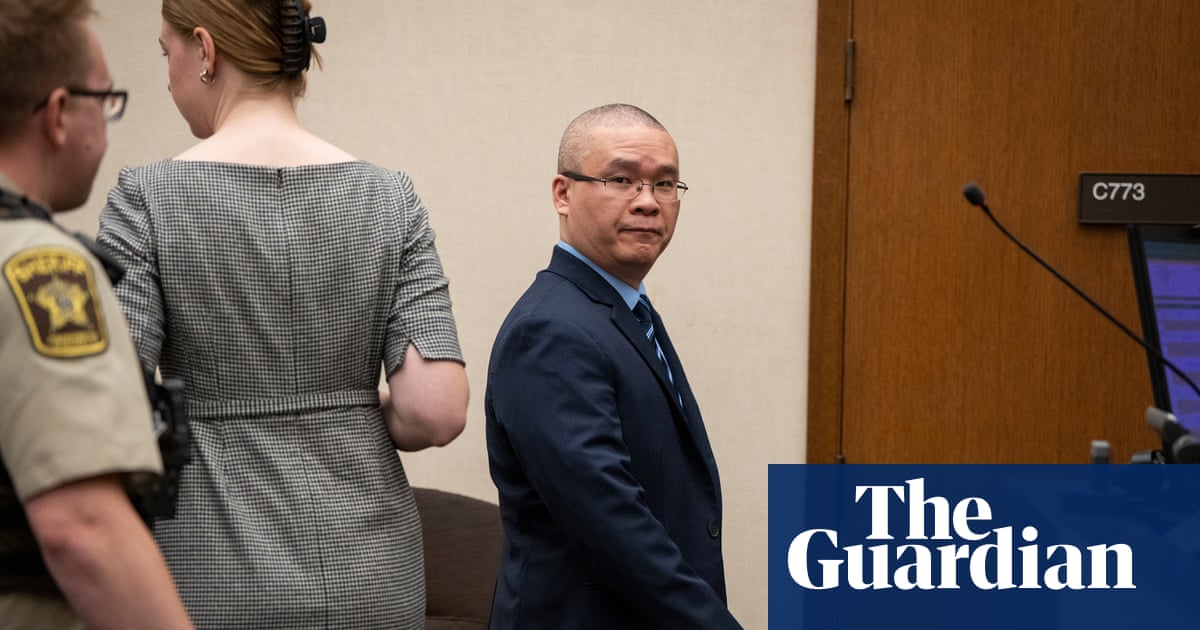
Keir Starmer has vowed to introduce a race equality act to address inequalities exposed by the coronavirus pandemic on the anniversary of George Floyd’s murder, as vigils are held across the UK to mourn his death.
The Labour leader, in a joint video statement with the shadow cabinet ministers David Lammy and Marsha de Cordova, said eradicating structural racism would be a “defining cause” for the next Labour government.
Floyd’s murder by a white police officer sparked a huge wave of anti-racism protests in the UK, with 260 towns and cities holding Black Lives Matter protests last June and July. The protests were attended by hundreds of thousands of people.
Lammy, the shadow justice secretary, said: “George Floyd looked like me, he could have been me. That’s why his death reverberated around the world. People said: ‘None of us can breathe when we still face the issues of structural racism in our lives every day.’
“That’s why George Floyd’s death sparked a global movement, from Minneapolis to Manchester to Mile End. Black and white people came together to say Black Lives Matter.”
Vigils are expected to take place across the country with crowds gathering in Brighton, Bristol, and Sunderland.
In Bristol a vigil was due to take place at the College Green in the city centre from 6.30pm followed by a nine-minute silence at 8pm with a roll call of names. A spokesperson for Bristol Copwatch, an organisation that will be speaking at the vigil, said: “Deaths at the hands of the police are much more than a statistic. This has never been a US problem. The trauma created by each death is long standing and wide reaching it echoes across our communities. And the divide between ‘us and them’ grows broader every day.”
A statue of the slave trader Edward Colston was toppled from its plinth and pushed into the docks by protesters in the city during a Black Lives Matter protest on 7 June last year. Since then, several items have been placed on the empty plinth, including a statue of the Black Lives Matter protester Jen Reid.
According to a new poll, Britons remain split over the attention paid to racism over the last year. The research by Ipsos Mori gave an insight into British attitudes towards racism and inequalities one year after Floyd’s murder, with 28% of respondents saying it had been discussed too much, while 30% said it had been spoken about too little.
However, a majority said more needed to be done to tackle the issue, with Black African people and Gypsies, Roma and Travellers being seen as those treated most unfairly by society
The survey showed clear differences among the population, with 58% of 16- to 34-year-olds wanting more action to be taken while just under half of 55- to 75-year-olds felt the same (47%). Two-thirds (65%) of people from ethnic minority groups said more needed to be done to fight racism, compared with 52% of people from white ethnic backgrounds.
Kully Kaur-Ballagan, the research director at Ipsos Mori, said the conversation on racism over the past year had been brought to the fore and the UK remained split on whether it was being given enough attention.
“The majority of the public, though, do acknowledge that more needs to be done to tackle the racism that ethnic minorities in Britain face today – particularly among ethnic minorities themselves,” she said.
The anniversary has led to campaigners renewing their calls for a crackdown on stop-and-search powers by police because of fears they could be extended under a controversial policing bill, leading to people from black and ethnic minority backgrounds being disproportionately targeted.
The government wants to introduce serious violence reduction orders as part of the police, crime, sentencing and courts bill to make it easier for police to carry out checks on people who have been previously convicted of carrying a knife.
The human rights group Justice said greater restrictions were needed on stop and search to “avoid discriminating against our country’s ethnic minorities”, adding that the bill would “extend punishment from prison into the community, and risk further damaging confidence in the police”.
Katrina Ffrench, the founder and director of Unjust, an organisation that scrutinises policing, said there was “no place” for section 60 powers and warned the public could soon see a “morphing” of stop and search, adding: “If this bill is passed, it is going to get much worse.”
The chief constable of West Midlands police, Sir Dave Thompson, who is also the vice-chairman of the National Police Chiefs’ Council, said much had been done to address racism, discrimination and bias where it had been found in policing but “we must now go further and faster, because doing the right thing by investing in community confidence will help to keep everyone safe”.
In sport Uefa launched a campaign to coincide with the anniversary, encouraging everyone involved in football to join the fight against discrimination by signing up to the Equal Game campaign. The message is being spearheaded by sport stars including Paul Pogba, Jadon Sancho and Moise Kean.
“It is not only players but all of us that should be role models in the fight against discrimination. Famous or not, we all have the responsibility to act and positively influence our environment,” said Uefa’s president, Aleksander Čeferin.
UK Athletics marked the anniversary by reaffirming “its commitment to zero tolerance of racism and all forms of discrimination”, and Rugby Football League’s chief executive, Ralph Rimmer, wrote an open letter on rugby-league.com admitting his sport needed to do more.
“The truth is that, when spectators returned last week, black faces were few and far between,” said Rimmer.
“The reality is that our sport is not fully representative of our communities – on professional or community pitches, in boardrooms and clubhouses, on the terraces and out in those communities.”












